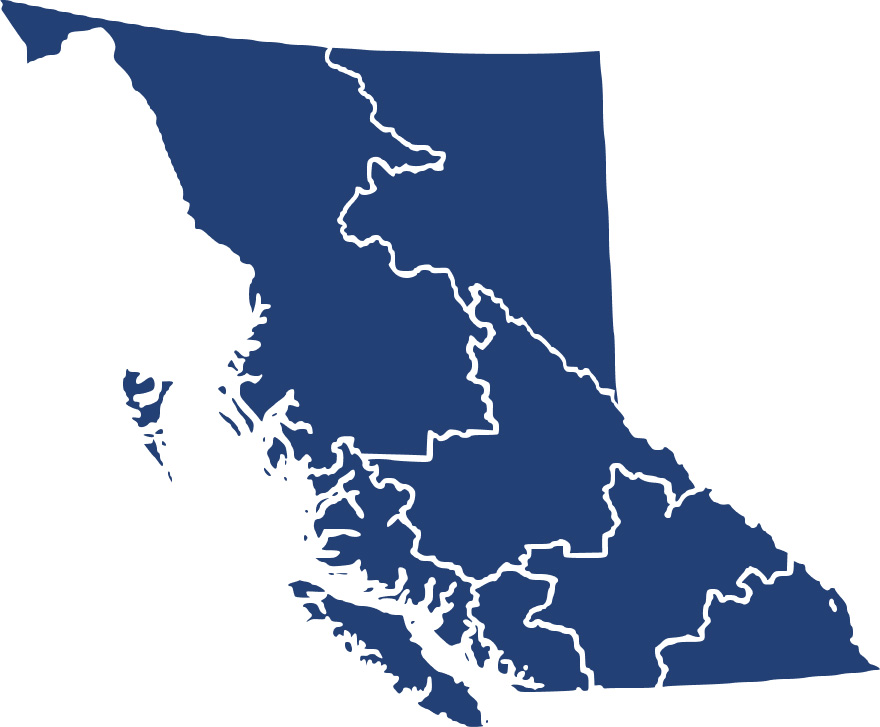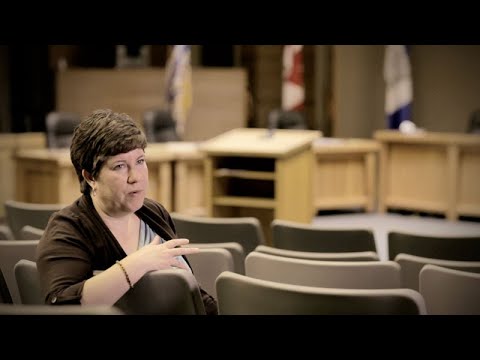Career Overview
Social workers provide counselling, therapy and other supportive social services. They help individuals, couples, families, groups, organizations and communities develop the skills and resources they need to function well in society.
Social workers also refer clients to other social services. In addition, they respond to broader social issues such as unemployment, racism and poverty.
Duties
In general, social workers:
- Interview clients
- Provide counsel and therapy to help clients develop skills to deal with their social and personal problems
- Plan assistance programs for clients, including referring them to financial help, legal aid, housing and medical treatment
- Investigate cases of child abuse and neglect and take authorized protective action when necessary
- Serve on interdisciplinary teams that work with client groups
- Act as advocates for client groups and develop prevention and intervention programs
- Provide mediation services and psychosocial assessments
- Evaluate the effectiveness of counselling and social programs
- Develop and advise on social policy legislation, conduct social research and assist in community development
- Work with community-based groups and organizations that do support or social service work
Social workers may also:
- Provide public education and consultation on counselling services, issues and methods
- Supervise other social workers
- Use technology to record interactions with clients
- Work in international development with non-governmental organizations
Earnings
Earnings is income that workers receive in exchange for their labour. Depending on the type of employment, earnings can be in the form of wages (hourly), salaries (fixed monthly or annual) or self-employed earnings.
Work Environment
# Workers Employed
7,340% Employed Full Time
70%Most social workers work in the health and social services industry or are employed by government. They may work for hospitals, school boards, social service agencies, child welfare organizations, correctional facilities, community agencies, employee assistance programs or First Nation band councils.
Most spend their time in the office or in a facility, such as a hospital. They may also provide counselling, consulting and other services via the internet. Some social workers travel to meet with clients or to consult with service providers. Those involved with the legal system may spend time in court.
Social workers usually have a standard workweek, although they may meet with clients, attend public meetings, or deal with emergencies in the evenings or on weekends.
Social work can be emotionally demanding and lead to employee burnout. Workers may deal with cases involving extreme poverty, neglect and a lack of resources. Large caseloads add extra pressure. In addition, social workers who work in international settings often lack support.
Career Pathways
Recent graduates often work in child protection services for the government. They also find jobs with community-based organizations dealing with youth, seniors and people with special needs related to mental health, the criminal justice system, disability, and immigration and adjustment to Canadian society. They may also do international work with non-governmental organizations.
Social workers with experience and further education may progress to supervisory or administrative positions, or they may become case managers or policy analysts. They may specialize in areas such as child welfare, family services, corrections, gerontology, mental health or substance use.
Those with advanced education, such as a master’s degree in social work, are in higher demand in fields such as youth services, psychiatric social work and geriatric social work. Social workers with graduate degrees can also pursue social planning or research. Those with doctorates sometimes take faculty positions in colleges or universities, where they teach or do research.
Related Careers
Occupational Interests
It’s important to understand what kinds of occupations align with your interests.
For more about occupational interests visit Skills for the Future Workforce > Characteristics.
Here are the top occupational interest(s) for this career profile:
Job Titles
Education, Training and Skills
To be registered to work in B.C., social workers must have a university degree in social work from a school accredited by the Canadian Association for Social Work Education. Some positions may also require:
- A master's degree
- Supervised practical experience
- Successful completion of written or oral provincial exams
- Additional training–in child protection, for example
Qualified applicants with degrees in related fields, such as youth and child care, may also be considered for employment.
Social workers must be empathetic and able to work in difficult situations.
Social workers who are certified for that occupation by a regulator elsewhere in Canada can apply for the same certification from the regulator in B.C. Under the terms of the Canadian Free Trade Agreement (CFTA), most applicants who are transferring their credentials from elsewhere in Canada will not be required to complete additional training or testing. However, the B.C. regulator may ask applicants to provide further information such as a letter of good standing, references, or criminal record check.
For those who trained outside of Canada and never received certification from any Canadian jurisdiction, a full assessment is likely needed. Most occupational regulators have a process for assessment and recognize internationally trained applicants.
Contact the British Columbia College of Social Workers for details on how to apply for certification in B.C.
For information about labour mobility in Canada, visit www.workersmobility.ca.
View a list of Professional Regulatory Authorities in B.C.
Education programs in B.C.
The following program areas are related to this occupation:
- Social Work

Skills
Every job calls for a certain set of skills. Knowing those skills is the first step in finding a good career fit.
Here, you will find the 10 most relevant workplace skills. Some are more important to achieving success in a certain career than others. These skills may come naturally to you or you may need to gain them through education, training and experience.
See the list of work-related skills below, ranked in order of importance for this career. Check out the list and see if this career matches your skills—take that first step!
Giving full attention to what other people are saying, taking time to understand the points being made, asking questions as appropriate, and not interrupting at inappropriate times.
Talking to others to share information effectively.
Being aware of others’ reactions and understanding why they react as they do.
Using logic and reasoning to identify the strengths and weaknesses of alternative solutions, conclusions or approaches to problems.
Actively looking for ways to help people.
Understanding written sentences and paragraphs in work-related documents.
Being able to solve novel, ill-defined problems in complex, real-world settings.
Adjusting actions in relation to others' actions.
Communicating effectively in writing as appropriate for the needs of the audience.
Keeping track of and assessing your performance, other individuals, or organizations to make improvements or take corrective action.
Labour Market Statistics
Discover data, facts and information that have been gathered and analyzed. Learn about the characteristics of the economy and labour market in B.C.
Employment
Find out about employment types and trends by region and industry.
Employment
7,340Employment by Region















| Region | Employment | % Employment of this Occupation |
|---|---|---|
| Cariboo | 345 | 4.7% |
| Kootenay | 230 | 3.1% |
| Mainland/Southwest | 4,025 | 54.8% |
| North Coast and Nechako | 240 | 3.3% |
| Northeast | 95 | 1.3% |
| Thompson-Okanagan | 1,040 | 14.2% |
| Vancouver Island/Coast | 1,365 | 18.6% |
Labour Market Outlook
The B.C. Labour Market Outlook is a 10-year forecast of the expected supply and demand for labour in the province. It’s usually updated every year. The purpose is to provide British Columbians with the knowledge to make informed decisions on careers, skills training, education and hiring.
Forecasted Job Openings (2023-2033)
3,370Forecasted Job Openings
Forecasted Employment Growth Rate
Composition of Job Openings
Job Openings by Region (2023-2033)















| Region | Job Openings | Avg. Annual Employment Growth |
|---|---|---|
| Cariboo | 140 | 0.3% |
| Kootenay | 90 | 0.9% |
| Mainland/Southwest | 1,800 | 1.7% |
| North Coast and Nechako | 60 | 0.7% |
| Northeast | 30 | 0.3% |
| Thompson-Okanagan | 570 | 1.6% |
| Vancouver Island/Coast | 680 | 1.3% |
Industry Highlights
Learn about the opportunities in B.C.'s major industries, including employment trends, earning potential, locations of work and more.
Forecasted Job Openings by Industry
| Industry | Job Openings (2023-2033) |
|---|---|
| Health Care And Social Assistance | 2,480 |
| Public Administration | 610 |
| Finance, Insurance And Real Estate | 120 |
| Repair, Personal And Non-Profit Services | 60 |
| Educational Services | 60 |
Insights from Industry
New job opportunities in social work will continue to emerge, mostly to replace retiring workers.
There is growing demand for social workers with clinical specialities, particularly in health care. The aging population will create work in gerontology, including jobs with assisted living and residential care complexes catering to seniors. In addition, hospitals will need more in-house social workers as they increase the rates of early discharge.
B.C.’s changing demographics will likely mean a higher proportion of social work jobs in urban areas. At the same time, workers will continue to be in demand in rural and remote areas.
Although part-time work and self-employment are unusual in social work, a rise in corporate employee assistance programs and training seminars will bring an increase in contract work.
Resources
-
BC Association of Social Workers (BCASW)www.bcasw.org
-
British Columbia College of Social Workers (BCCSW)bccsw.ca
-
Canadian Association of Social Workerswww.casw-acts.ca
-
Canadian Association of Social Workerswww.casw-acts.ca









